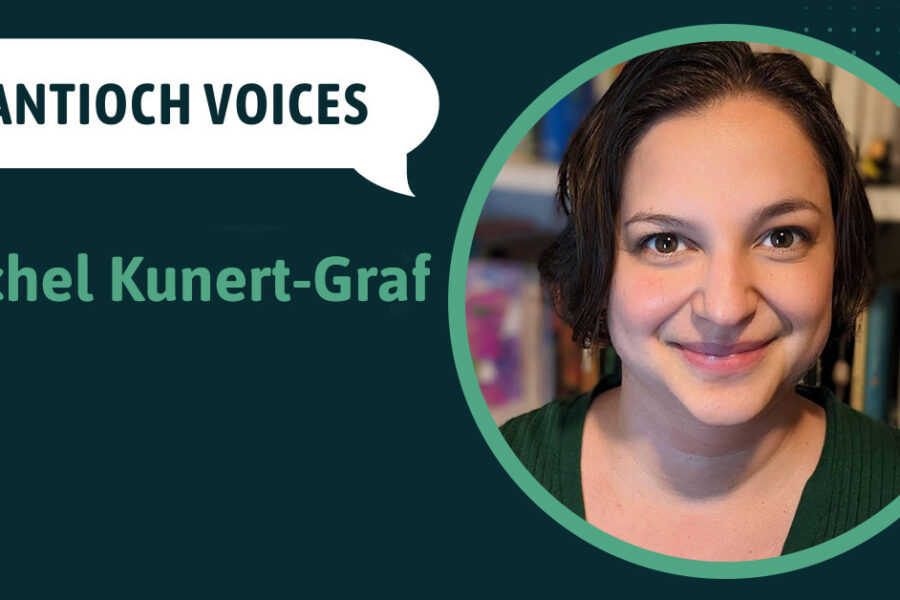The email Jude Bergkamp, PsyD, chair of Antioch Seattle’s PsyD in Clinical Psychology, was waiting for arrived unexpectedly on a Wednesday afternoon. After months of preparation, research, and an in-person site visit, the program had been approved with, as Bergkamp described, “nothing but praise and excitement,” for a full 10 years of accreditation through the American Psychological Association (APA). The APA, which serves as a professional organization and governing body for psychological training programs, provides rigorous educational standard guidelines for programs to follow, ensuring that graduates of APA-accredited programs are well-equipped to enter professional practice.
When Seattle’s PsyD program was founded in 2004, APA accreditation and their standardized training guidelines were only just beginning to gain traction in professional psychology. As the APA’s guidelines for training grew in popularity, it became increasingly clear that Seattle’s PsyD wanted to follow suit, and they secured initial accreditation for the 2016-2017 academic year. “The field moved in a direction where, in order to survive and have a good livelihood,” Bergkamp explains, “you really needed to come from an APA-accredited school.”
However, the program also wanted to maintain its strong commitment to social justice, even within the standardized requirements of APA. Seattle’s mission has always been about fostering the development of competent psychologists who are fully immersed in evaluation, assessment, research, and diagnostics. However, as Bergkamp says, “It is simultaneously about holding a very clear understanding of the historical and colonial legacy of oppression, exploitation and domination, and how clinical psychology has been really a mechanism and tool within that agenda for years and years and years.”
The need for both rigorous training in clinical practice and a simultaneous need for critically examining the field’s history led Seattle’s core faculty to assert a personalized 10th training competency when applying for re-accreditation. Alongside 9 other core competencies deemed as essential to the training and practice of aspiring psychologists, programs have the option to create a 10th “program-specific competency.” For Seattle, that 10th competency became the application of social justice topics in core coursework and clinical practice.
While other programs across the country have asserted program-specific competencies in areas such as forensic or neuropsychology focuses, Seattle’s social justice competency marks perhaps the first time an APA-accredited program has fully integrated social justice topics into core clinical courses. “Social justice is now a measurable construct that has to be operationalized in practice,” Bergkamp explains. “This means that our professors, adjunct faculty, clinical supervisors, and even dissertation committee members must understand what this entails. We had to ensure that cohorts were adequately trained, and we meticulously tracked data to determine what was working.”
In order to measure the competency of social justice, and ensure it was appropriately standardized for APA, Bergkamp and other faculty members were tasked with how to define social justice, as well as how it was a skill to be taught, developed, and maintained for students. Dana Waters, core faculty and database coordinator for the program, developed and currently maintains outcome data for Seattle’s training standards. “I am delighted to celebrate the PsyD program’s 10 years of accreditation,” she says, “our commitment to excellence ensures that we are consistently re-evaluating, based on evidence, the most effective ways to serve our students and maintain the program’s relevance.”
Bergkamp himself has written numerous articles on the relevance of bringing social justice knowledge into clinical psychology programs, alongside Lindsay Olsen and Abi Martin, both 2021 graduates of Seattle’s PsyD. As Bergkamp, Olsen, and Martin’s article describes, despite the APA’s “encouragement to recognize and understand the experience of social privilege both within themselves and the individuals and communities they serve,” there is a lack of research to guide clinicians and training programs through such a process. Seattle’s assertion of the social justice competency, however, is beginning to fill the gaps in just how social justice can be defined, taught, and fostered over one’s professional training experience.
As Seattle prepares to celebrate 20 years of its PsyD program, and Bergkamp enters his 10th year as chair of the program, the APA accreditation and program-specific competency serve as a testament to Seattle’s social justice commitment and tenacity. “In a certain way,” Bergkamp says, “I took this as a sign that, not only were we on the right track, but we had some courage and future focus and aspiration and we made that happen.”




